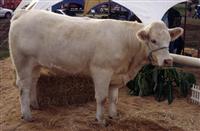
Study Animal Husbandry at home
This course is designed to give you the knowledge and skills to work confidently in the agricultural environment in a range of roles related to animal production and husbandry. Learn about animal breeds, behaviour, nutrition, animal health care issues and general management methods.
Recognise and diagnose different pests, diseases and conditions that affect the well being of both pets or other livestock, and implement control strategies for common problems.